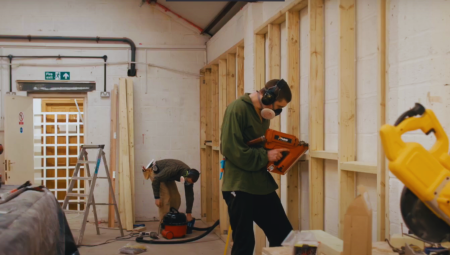ARTICLE
Why we need small businesses to address their environmental impact too
Businesses are responsible for 18% of total carbon emissions in the UK, so they’re a crucial part of the puzzle to respond to climate change. And that includes smaller businesses too.
Businesses play a key role in decarbonisation to tackle climate change. In the UK, businesses are responsible for 18% of total carbon emissions (2018 data). These emissions are from a host of business activities, from corporate travel, to the energy used in production, to the transportation of products to end users.
Businesses have the power to lead change, making improvements across their own business practices, as well as supporting policies for positive change.
When we think of the role of businesses in climate change, we often think of large corporates. Big businesses, of course, can have a substantial impact. They’re also making lots of noise about sustainability now. Microsoft has pledged a $1 billion investment to go carbon negative as a company. Amazon founded a ‘climate pledge’ encouraging companies to go net zero by 2040, now also signed by giants such as Unilever and Coca-Cola. Whether you trust the authenticity of these pledges is another matter, of course.
But what about smaller businesses? Small and Medium Enterprises (SMEs) make up 90% of the UK’s businesses, totalling around 5.9 million companies.
90% of UK businesses are small or medium sized, totalling 5.9 million companies.
These companies may employ much fewer people and have a much smaller turnover than the big corporates but, combined, they make up a substantial amount of total businesses. The SME sector as a whole in the UK emploes over 16.5 million people – a quarter of the total population.
A British Standards Institution (BSI) survey in September 2020 saw 7 out of 10 respondents overall say their company has made or is planning to make a commitment to the government’s 2050 net zero goal. But within this, just 2 out of 10 small businesses have committed to the target.
So what can small businesses do to reduce their environmental impact? It goes without saying that smaller businesses rarely have the budget to make the commitments that large businesses can. But, there’s still much to be done. Small firms can play their part in many ways: reducing non-essential business travel, switching to local suppliers, reducing waste in the office, and more.
What’s a good place to start?
We’d recommend that a great place to start is reducing energy waste in the workplace. There are several no cost or low-cost solutions which can make a large difference straight away. You could start by ensuring lights, heating, and equipment are always switched off when not in use, which may also need an employee awareness campaign. Swapping to LED light bulbs greatly increases the efficiency of your lighting, meaning less energy is wasted.
If your small business is willing to spend a bit more on energy improvements, improvements could include: installing a low carbon heating system, replacing or repairing single-glazed windows, adding or increasing insulation in the building to reduce heat loss, and more.
We know it can be difficult for smaller businesses to cover upfront costs of energy improvements, but these measures will save a business money in the long run, reducing monthly energy bills. If you work with Energy Solutions Oxfordshire, we can also help you to access to financing opportunities to help your small company cover the installation costs.

Thanks for reading!
Energy Solutions Oxfordshire makes it simple for every organisation to stop wasting energy, cutting running costs whilst helping to tackle climate change. Get started by filling out our online survey to get a free Desktop Diagnosis Report for your organisation.
Did you like what you read?
Then share this page with a colleague to keep the
conversation going and spark new ideas.



